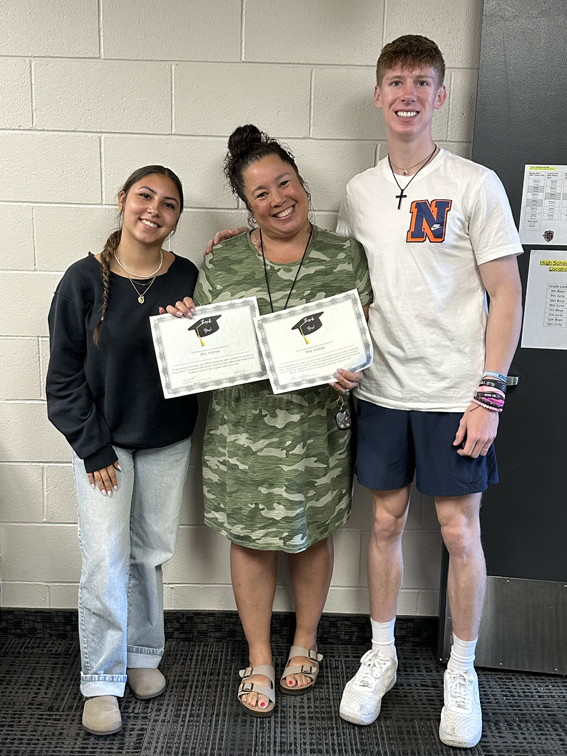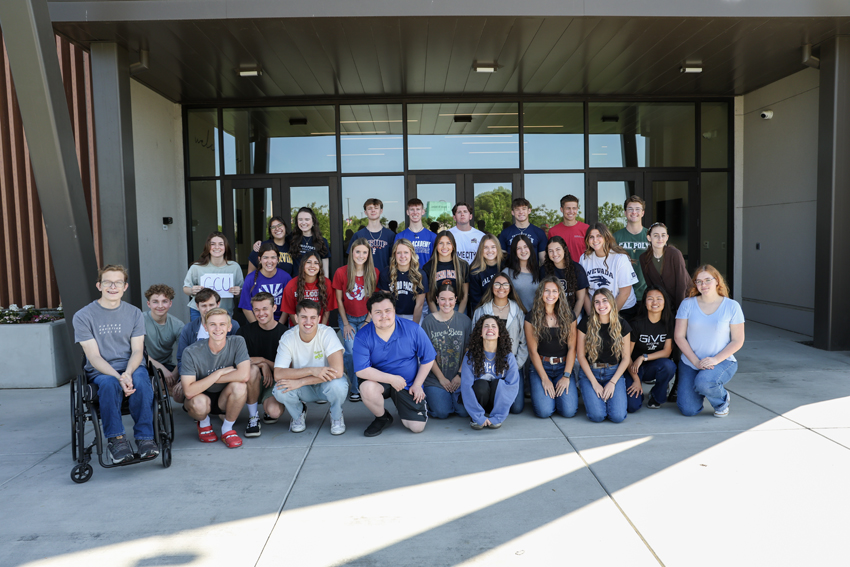If the mock election represented the actual opinion of American voters, Sen. John McCain would have ascended the victor’s podium and addressed an enthusiastic rally of supporters on Election Day.
The student body participated in the mock election organized by one of the civics classes, Nov. 4. The ballot included presidential nominees Barack Obama, Chuck Baldwin, Ralph Nader and McCain; mayoral candidates Ashley Swearengin and Henry T. Perea; as well as Propositions 8 and 10.
Of the 258 students currently enrolled, 178 voted in the imitation election, although not all did so for every office or issue. The 69% participation mirrored the record-breaking 65% estimate of voter turnout for the 2008 election, according to Jill Lawrence’s USA TODAY article, Passionate race drives a massive turnout.
“I think a lot of people voted this year because it was an important election,” Clark Jacobson, ’10, said. “Prop. 8 was a big factor and if they vote for that then they might as well vote for the presidential election too. It also seems like a lot of young people aren’t apathetic toward politics anymore.”
In a landslide, 84% of students voted for McCain, while the actual president-elect, Obama, garnered only 10%. Third-party candidates Baldwin and Nader each received 3%.
“I like Obama and I voted for him,” Kelsey Hart, ’11, said. “Even though my candidate lost in the mock election, I’m glad we did it because it gets people involved in politics.”
On the city level, Swearengin conquered the mayoral race with an 81% majority, while Perea attracted 19% of students. The outcome paralleled the actual election in which Swearengin defeated Perea with a 55% majority, according to a Fresno Bee article.
As expected, Prop. 8 passed with approval from 88% of students. Prop. 10 met with similar favor, as 66% of participants voted for it. In reality, Prop. 8 passed with a significantly smaller majority of 52.5% while Prop. 10 failed with 59.7% opposition, according to the Los Angeles Times’ 2008 election results.
“I think the results were pretty predictable,” Nathaniel Nyberg, ’10, said. “Before the [mock] election, I asked around and most people wanted McCain to win. Plus, we have a really conservative campus.”
The mock election featured a second ballot that described the presidential candidates’ stances without stating their names. Although McCain also won the “blind ballot,” Baldwin improved from the initial vote to come in second behind the Arizona senator.
“I was surprised that Baldwin gave a run to McCain on the blind ballot,” Bessalee Downing, civics teacher, said. “It proved that some people voted for a candidate based on ideology. Although [Baldwin and McCain] are similar, they picked somebody that was ‘the name’ everybody knew.”
As evidenced by the outpour of propaganda from both the media and Facebook users, the 2008 presidential election sparked passionate displays of political affiliation since the primaries. While many regard this election as historic and significant to the nation’s future, foreign students on campus witnessed the campaign affairs from a different perspective.
“We do elections in Vietnam too, but the government selects people to choose from,” Ngoc Bich “Becky” Nguyen, ’09, said. “Here, anyone can become a nominee. We still care [about the election] because we stay here for 7-10 years, so it affects us.”
Although the majority of conservatives on campus rooted for McCain in the actual election, some hold positive and hopeful attitudes toward president-elect Obama.
“I’m a little disappointed that McCain lost in the real election, but I hope Obama will be good for us,” Tim DeGroot, ’11, said. “I want him to help the economy and bring America back on its feet.”
For more coverage and columns on the 2008 presidential election, visit the Opinions Section.






